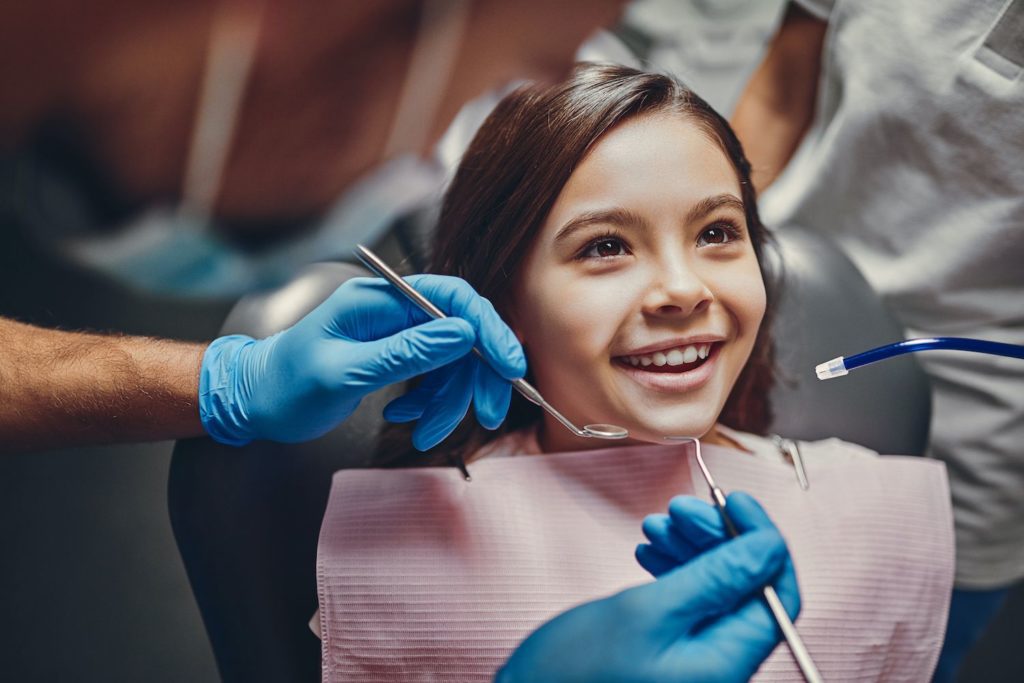Many children don’t like going to the dentist. Between the strangers and the drills, it can be a scary ordeal. Sometimes, children can throw a fit or make it hard to get them to their appointments. As a result, you may be tempted to avoid taking them to the dentist. Their teeth are going to fall out anyway, right?
Unfortunately, not taking your child to the dentist can have serious consequences for their oral health, even as an adult. If your child is afraid of dental appointments, be sure to talk to your dentist. They can give you advice on how to help your child settle their anxiety. Additionally, they can make your life easier by teaching them proper oral health techniques.

Why It Is Important?
Your child’s oral health can impact their health as an adult. For example, untreated cavities in primary (baby) teeth can cause decay in adult teeth before they erupt. This is because the decay will continue through the teeth. If there is decay in a tooth, it will not stop deteriorating the tooth or surrounding tissue until a dentist provides the treatment.
Since adult teeth lie within children’s jaws, the decay can move into the adult teeth. Not only will this damage the adult teeth, but it can make it more difficult to treat the decay. Additionally, this decay can cause permanent damage or deformities in their adult teeth.
Another issue to keep in mind is that your oral health as a child is an indicator of what your oral health is likely to be as an adult. If you have dental issues or poor oral hygiene as a child, those problems may follow you into adulthood. Teaching children proper oral health habits can help cement them as a lifestyle. Habits that children learn young are more likely to continue as an adult. If you take them to the dentist regularly, they will probably go more in the future.
In addition, taking your child to the dentist as recommended can help reduce their anxiety. If they form a relationship with a dentist, they can trust that nothing bad will happen. With their anxiety lessened, their appointments will run much smoother. This will make their dental appointments better for everyone—you included.
How Can You Help?
The younger you can bring your child to the dentist, the better off they will be. Dentists recommend bringing your child to their first dental appointment around a year old or when their first baby tooth comes in. This helps your child adjust to going to the dentist sooner, which means they are less likely to be anxious. Additionally, your dentist will teach you how to care for their baby teeth, keeping them healthier. As they get older, your dentist will show your child how to care for their teeth themselves.
Brushing and flossing your teeth with your child can help them pick up the habit. Children are more likely to adopt a routine that you do as well.
